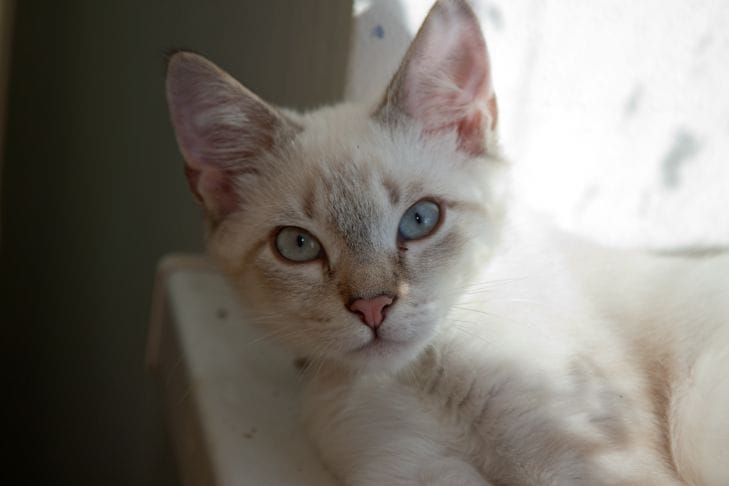Are you sure your cat loves you when she purrs on your lap or rubs against your legs?
Zoopsychologists warn: these actions may be a cry for help, not an expression of affection.
A study by Catster magazine found that 67% of owners misinterpret their pets' signals, mistaking stress for love.

Let's look at three of the most dangerous misconceptions that are ruining your relationship with your cat.
"She's purring with happiness!" - No, she's trying to calm down.
Purring isn't always a sign of pleasure. Scientists from the University of Lincoln have found that cats use purring as a self-soothing mechanism when stressed or in pain.
If your pet purrs while curled up and avoiding eye contact, this is an alarm signal.
Zoopsychologist Tatyana Kulikova explains:
"Cats purr even when they are dying. It is their way of coping with discomfort, not an expression of love."
"She tramples me with her paws, like when she was a child!" - This is manipulation, not tenderness.
Paw "massage" is a relic of kittens' feeding instincts. Adult cats use it to beg for food or attention.
The Purina ONE experiment proved that 80% of cats begin to “trample” their owners before feeding, associating the action with receiving food.
But if the pet does it aggressively, scratching the skin, it is a sign of frustration. Veterinarian Anna Belova warns:
“This behavior often accompanies hormonal imbalances or a lack of resources.” 8.
"She sleeps on my pillow - that means she trusts me!" - No, she's marking her territory
When a cat sleeps on your bed or clothes, it is not expressing love, but marking you as part of its "pack."
A study by Dreamies found that cats choose sleeping areas with a strong scent of their owner to scare off competitors.
But if the pet suddenly starts sleeping at the foot of the bed or under the bed, this is a sign of fear. Zoo psychologist Rita Reimers clarifies:
"A cat avoids direct contact if it feels threatened. For example, after a quarrel or the arrival of a new pet."
Why Your Cat "Hates" You Actually
Stress is often hidden behind "affectionate" gestures. For example, rubbing against legs is a way to leave pheromones, not a sign of affection.
If the cat does this obsessively, it may be bothered by a new smell in the house or competition with other animals.
Marina's story from Krasnodar:
"My cat started rubbing against me 20 times a day. The vet found a tumor - this was his way of dealing with the pain" 2.
How to fix the situation
— Observe the context: if “affectionate” gestures become more frequent when there is noise or when guests visit, this is stress.
— Create safe zones: houses, shelves at height.
— Stop punishing. As Ohio University has proven, yelling destroys trust and causes illness.
